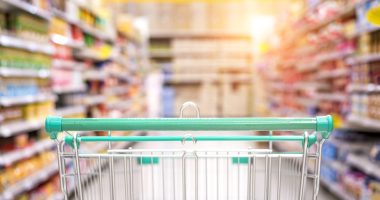INFLATION has hit a 40-year high of 9.1%, according to new figures from the Office for National Statistics.
The consumer price index (CPI) measure of inflation hit a 40-year high of 9% in April, and today’s data shows it has inched up slightly in May.
Today’s inflation rate is the highest since 1982, the ONS said.
But struggling households are still being warned that the worst is yet to come.
Last week, the Bank of England said inflation could hit 11% this year.
Commenting on today’s figures, Chancellor Rishi Sunak said: “I know that people are worried about the rising cost of living, which is why we have taken targeted action to help families, getting £1,200 to the eight million most vulnerable households.
“We are using all the tools at our disposal to bring inflation down and combat rising prices – we can build a stronger economy through independent monetary policy, responsible fiscal policy which doesn’t add to inflationary pressures, and by boosting our long-term productivity and growth.”


Inflation is a measure of how the price of goods and services have changed over the past year.
The soaring rate reflects the current cost of living crisis, with millions of people grappling with rising energy bills, petrol prices and grocery costs.
The inflation rate is a so-called backward looking measure, which means it shows how prices have changed over the past 12 months – it does not predict the future.
But with energy bills now expected to hit £3,000 by the end of the year and petrol reaching new record highs, Brits are braced for worse.
Most read in Money
Today’s figures show transport, housing costs and energy bills were among the main factors pushing up inflation.
The ONS said higher income households had been hit worse by transport costs as they were more likely to use a car, so will have felt the impact of soaring petrol costs.
Grant Fitzner, chief economist at the ONS, said: “Continued steep food price rises and record high petrol prices were offset by clothing costs rising by less than this time last year and a drop in often fluctuating computer games prices.
“The price of goods leaving factories rose at their fastest rate in 45 years, driven by widespread food price rises, while the cost of raw materials leapt at their fastest rate on record.”
Food and drink prices have also increased, along with clothing and footwear.
What does inflation mean for my finances?
Rising inflation indicates that the cost of goods and services is going up, and that means your money won’t stretch as far as it once did.
Inflation soaring at its fastest rate in 40 years means many households are seeing prices rise faster than in living memory.
The cost of everything from energy bills to groceries, petrol and clothing is going up.
At the same time, wage increases are failing to keep pace with inflation which is why experts talk about people suffering a “real terms” pay cut, because their salary isn’t keeping up with the cost of living.
Usually, experts advise making sure you money is in a high interest savings account when inflation soars, so your balance can grow in line with rising prices.
But although the Bank of England last week hiked interest rates for a fifth consecutive time, at 1.25% they are still very low by historical standards meaning savings accounts can’t keep up with inflation either.
What can I do to battle inflation?
There are small steps you can take to try and ease the squeeze – and our Squeeze Team is a panel of experts full of tips and advice to help you cut costs.
Shopping around for insurance, buying own-brand where possible, and using cashback sites are just some of their recent recommendations.
If you are struggling, it is important to see what help is available that you may be eligible for.
Last month, Rishi Sunak announced a package of measures including £400 energy bill rebate for every household, an extra £650 for millions on benefits, and a £300 winter payment for older people.
The £1.5billion Household Support Fund sees cash dished out to local councils to help people in their area.
Contact your local authority to find out what is available where you live and if you’re eligible.
Some are giving out free cash or supermarket vouchers, while others offer help with housing costs or energy bills.
A number of energy firms have hardship funds which offer grants of up to £750 for those struggling with their bills.
Low income families with young children could be entitled to Healthy start vouchers to help you cover the cost of fresh food and drink for your kids – they’re worth £221 a year per child.
And use a benefits calculator to see you’re entitled to help – there’s an estimated £13billion in unclaimed benefits you may be missing out on.


If you are struggling with your bills then there are a number of charities and organisations which may be able to help:
We pay for your stories!
Do you have a story for The Sun Online Money team?










